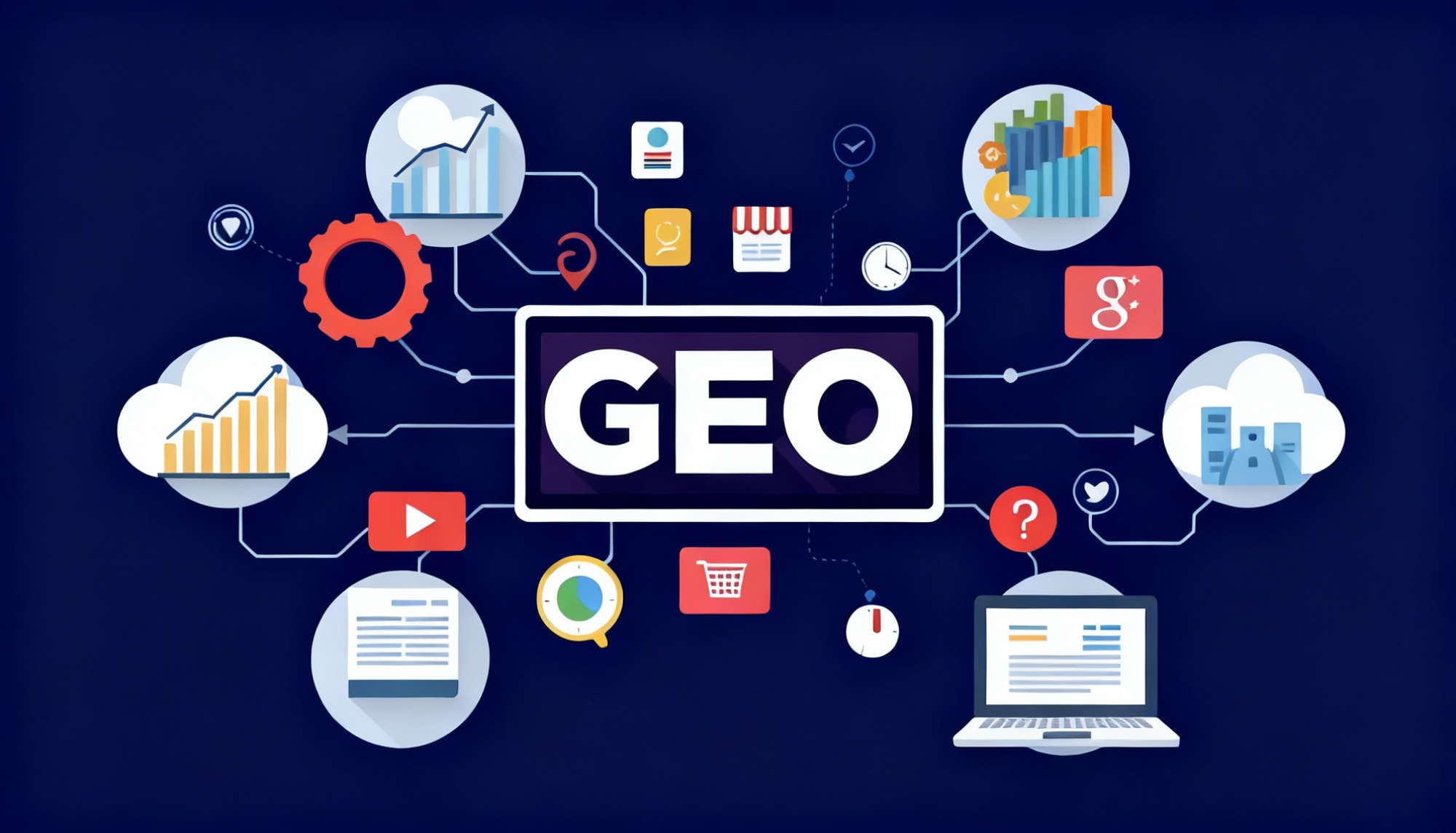BrightEdge and Moz are two major players in the marketing technology industry. But which one is the best fit for your business? In this blog post, we'll look at Moz vs BrightEdge and compare their features, pricing, and overall effectiveness to help you make an informed decision.
We aim to provide valuable insights that can aid your search for the most suitable content marketing solution for your enterprise brand. So, without any further ado, let's get into it.
BrightEdge Overview
BrightEdge is a powerful search engine optimization (SEO) platform that has earned a reputation as one of the top choices for Enterprise-level businesses.
It is a highly innovative platform that transforms online content into business results that are tangible, such as engagement, revenue and traffic. Jim Yu and Lemuel Park came up with the idea, and the platform was launched in 2007.
This technical SEO tool has a sophisticated artificial intelligence and machine learning engine. It has a vast dataset named DataCube that provides keyword research to help build great content strategies and employs over 350 people.
BrightEdge searches for keywords and pages for successful search results and merges with other applications such as Adobe System, SEOmoz, and Majestic SEO. It offers a range of features, such as Page Speed recommendations, keyword tracking, and AI-powered content research.
With their Data Cube tool, BrightEdge users can track SERP rankings, keyword performance, and content strategies. ContentIQ is another feature that helps fix SEO issues and outranks competitors.
Pros of BrightEdge
BrightEdge is an SEO platform that offers a wide range of features and is best suited for larger businesses with complex SEO needs. It provides users with an automated site audit platform known as ContentIQ, DataCube, a dataset of over 3 billion keywords, and DataMind, which is an AI deep learning platform.
BrightEdge has a content optimization tool that offers valuable insights into how users can optimize their content for search engines. In addition, it provides customizable dashboards that allow users to create a personalized workspace that suits their needs.
BrightEdge offers a wide range of features, including keyword research, site audit, content optimization, and competitive analysis, which are some of its strongest features.
Cons of BrightEdge
While BrightEdge is a popular SEO platform, there are some limitations to its capabilities. For instance, the platform has a limited set of keyword research features, which may limit the depth of keyword analysis.
Also, BrightEdge lacks integration with other platforms and tools, making it tedious for users who have to manually swap between tools. Another drawback is that BrightEdge does not provide social media analytics or reporting capabilities in contrast to its competitor, Conductor.
Finally, the learning curve for using BrightEdge may be steep for novice SEOs compared to Conductor. Additionally, BrightEdge can be expensive for smaller organizations, making it relatively limited when it comes to being a cost-effective SEO tool for businesses on a tight budget.
Who Should Use BrightEdge?
- SEO Professionals
- Digital Marketers
- Big Organizations
- Agencies
BrightEdge Cost
The pricing for the BrightEdge platform depends on the specific features and services you require.
The company does not disclose pricing information on its website, but typically, BrightEdge pricing starts at around $10,000 per year for the basic package. This package includes features like keyword research, site audit, content performance, and reporting.
Also Read:
Scalenut vs Brightedge: An In-depth Analysis
Brightedge vs Conductor: Which SEO Platform Ranks Higher?
Moz vs Brightedge: Which is the Best Fit for Your Business?
Moz Overview

In 2004, Moz was established by Rand Fishkin and Gillian Muessig with a primary focus on Search Engine Optimization (SEO). Fishkin's vision for Moz was to offer businesses a comprehensive solution to integrate SEO into their digital marketing strategies.
Initially, Moz began as a blog named SEOmoz, which served as a platform for industry experts to share their knowledge and insights. As the blog's popularity grew, Moz evolved into a consulting firm.
In 2013, Moz underwent a rebranding process, shifting its focus to providing SEO services and tools to help businesses achieve growth. Today, Moz is a well-known player in the SEO industry, providing a range of solutions to help businesses optimize their online presence.
Moz Pro, a part of their suite, is their flagship product that includes tools for keyword research, on-page optimization, link building, and rank tracking. These tools can help businesses improve their website's visibility, drive traffic, and generate more leads and revenue.
Pros of Moz
Moz Pro is an excellent tool for businesses looking to improve their digital marketing strategies. The free version of the platform allows small businesses to get started with access to its features.
For larger enterprises, Moz Pro's data cube and integration with other programs make it a great option. The tool's AI and machine learning technology also make it easy to monitor trends and keywords in order to generate more effective marketing campaigns.
Cons of Moz
Despite its many pros, Moz has some limitations. It is somewhat tedious to understand the platform and deploy it. Besides, it can be challenging for novice users to use the platform to its full potential.
Who Should Use Moz?
- Small Businesses
- SEO Specialists
- Content Marketers
- Large Organizations
Moz Cost

Moz Pro has four SMB and enterprise pricing plans available for users to choose from, with the Standard plan beginning at $79 per month. With the Standard Plan, businesses get access to features such as five Moz Analytics Campaigns, 300 Keywords, 250,000 Crawled Pages and 15 Social Accounts.
The Premium Plan provides access to major data aggregators and costs $143/month. Besides, you can also opt for the medium and large plans that cost $239 and $479 respectively.
Also Read:
Moz Pro vs Scalenut: Which is the Best SEO tool?
Decoding the SEO Duel: Conductor vs Moz
A Comprehensive Comparison of SE Ranking vs Moz for SEO Success
Moz vs BrightEdge: In-depth Feature Comparison
Moz vs BrightEdge: Content Lifecycle Covered
Both Moz and BrightEdge offer comprehensive solutions for managing the entire content lifecycle, from ideation and creation to optimization and distribution.
However, BrightEdge's platform is more focused on enterprise-level businesses, while Moz's suite of tools is better suited for small to mid-sized businesses.
Winner: It's hard to say as it would depend on the specific needs and size of your business.
Moz vs BrightEdge: Content Optimization
Both Moz and BrightEdge offer robust content optimization tools to help users create high-quality, SEO-friendly content. Moz's platform includes a content optimization tool that analyzes content for readability, keyword usage, and other factors.
On the other hand, BrightEdge's platform includes an AI-powered content optimization tool that provides real-time SEO recommendations for improving content.
Winner: It's a tie.
Moz vs BrightEdge: Keyword Planning
Both Moz and BrightEdge offer powerful keyword research and planning tools, including the ability to track keyword rankings and monitor competitors.
BrightEdge's platform is more comprehensive in terms of data analysis and reporting, but Moz's keyword research tool is more intuitive and user-friendly.
Winner: It depends on the specific needs and preferences of the user. So, it is hard to pick a winner.
Moz vs BrightEdge: Free Trial
Moz offers a free 30-day trial of its platform, giving users ample time to explore its features and capabilities before committing to a subscription. BrightEdge, on the other hand, does not offer a free trial but provides a demo of its platform upon request.
Winner: Moz's free trial offering gives it a clear advantage over the BrightEdge platform.
Moz vs BrightEdge: AI-Writing
BrightEdge offers AI-powered content recommendations and optimization, including real-time analysis of content performance and suggestions for improvements. Moz, on the other hand, has recently introduced an AI-powered writing assistant that helps users write more compelling and SEO-friendly content.
Winner: Both platforms are highly effective in this regard. While the tools don't technically offer an AI writer, they can assist you with content through recommendations.
Moz vs BrightEdge: Which is Better?
Both Moz and BrightEdge are reputed SEO tools that help businesses to build their online visibility and drive organic traffic to their websites. Moz is suitable for small to medium-sized businesses, while BrightEdge is ideal for larger corporations that can afford its costs.
Moz offers an easy-to-use user interface, extensive resources on SEO, and a free trial. It is the go-to tool for keyword research, site audits, and tracking your site's search results.
BrightEdge, on the other hand, is a comprehensive content management and optimization platform that's best for larger organizations. It offers features such as intuitive recommendations and competitor analysis.
When choosing between Moz and BrightEdge, consider your business's size, goals, and features you need. That said, if both tools do not fall under your budget cap, check out Scalenut - another comprehensive SEO tool that helps you build strategy, scale content, and monitor your performance. Read on to learn more about the tool.
Scalenut: A Better Alternative to Brightedge and Conductor

Scalenut is an AI-powered content optimization platform designed to streamline your content creation process and improve your organic search engine rankings.
With real-time content analysis, optimization recommendations and keyword research features, Scalenut offers advanced functions to enhance your content's performance.
Here’s how Scalenut helped a leading Pharmaceutical brand add 100K traffic to their website.
Scalenut offers
- Keyword Planner and Cluster Creator
- Outline Generator
- Cruise Mode (Article Writer)
- Content Optimizer
- SEO Content Editor
- Traffic Analyser
Keyword Planner
The Scalenut Keyword Planner helps you achieve topical authority in your industry and specific niche. You can insert your niche topic in Scalenut’s Keyword Planner to generate a report that groups relevant keywords together.

This report lets you view metrics like relevance, CPC, and search volume under one tab. You do not need to juggle between multiple columns or tabs as you do in SEO tools like Ahrefs or Ubersuggest to find relevant metrics that matter to you.

If you are a content writer, you may have one seed keyword to target for each blog piece. In that case, you will need a list of relevant keywords to optimize your content for better ranking. That’s why the Scalenut content editor suggests relevant key terms your competitors’ content is currently ranking. This allows you to easily outcompete your competitors without doing hours of manual research.
Content Outline Generator
In Scalenut, you can create an AI-generated outline automatically or build a custom version by comparing top-ranking web pages under a single tab. With this information in one place, you can easily find content gaps, add frequently asked questions, and restructure your outline with the drag-and-drop option within minutes.

Moreover, Scalenut provides additional features like writing points and social listening tools to generate questions from forums like Quora, Reddit, and search results. This ultimately reduces the time taken to search and create an outline manually.
Cruise mode

Scalenut has an in-built AI writer to help you create quality long-form content at scale. The cruise mode function allows users to generate the first draft of their outline in less than 5 minutes. Once you have the first draft, compare it with your competitor's content. This helps you see what points and subheadings you have missed. Instead of juggling multiple tabs, you can find all your competitor's content under the research tab.

Moreover, you can fine-tune the AI-generated copy in Cruise mode using the rephrase, shorten, or expand options. You can generate additional information for each section using the write and instruct tools in the editor tab. Altogether, this gives you complete control over AI and allows you to generate brand-relevant content within minutes.
Content Optimizer
One of the biggest obstacles for content writers and bloggers is producing rank-ready content. You might be spending hours and hours ensuring every piece of content you publish is optimized to rank on Google or other search engines.

However, manually checking the keyword density and finding relevant keywords to target can be a hassle. In situations like this, a reliable content report can boost your confidence that a piece of content is optimized for search. That's why Scalenut's Content Optimizer grades your content to generate a score and necessary suggestions to help you find a place at the top of the SERP.
Moreover, you can use the fix-it button to auto-optimize your content based on the suggestion list. This eliminates manual editing time and acts as a supporting tool to fine-tune your content.
SEO Content Editor
Scalenut has advanced NLP and machine learning technologies to help you create content that ranks on the first page of the SERP for target keywords. You can see real-time NLP scores and custom SEO suggestions to improve your content.

Scalenut's SEO editor evaluates your content from different angles, like keyword density, links, content depth, key terms, and more.
Scalenut Traffic Analyser
Scalenut's traffic analyzer has two sections: Insights and Inventory.
The Inventory section of the Traffic Analyzer lists all the pages presented in your domain. This gives you a comprehensive view of all your content.
The Insights section breaks down the website performance data into different categories to help you interpret the metrics.
Along with basic details like overall traffic, impressions, average position, and CTR, you can also access complete details about the top gainers and top losers.

The top gainer's section displays all the keywords and pages that earned increased traffic, CTR, impressions, and ranking. In contrast, the top losers section lists all the keywords and pages that experienced a dip in performance. These insights ultimately help you spot underperforming content and optimize it for better ROI.

Further, you can get an overall view of keywords and pages that are generating more traffic impressions and ranking higher in the SERP.
As the source of traffic also plays a significant role in evaluating content performance, the insights reports also present device distribution, position distribution, and Click-through Rate.

Overall, the traffic analyzer report gives you all the data required to make strategic content decisions.
Pros & Cons of Using Scalenut:
Pricing
Who can benefit from Scalenut?
- SEO strategists are managing a team of writers.
- Content heads who are responsible for creating content briefs
- Writers who run a small team
- Writers who create SEO-based long-form blogs and articles
- Marketers who manage social media channels and content editing activities
What do users think about Scalenut? (User Reviews)
- G2 review - 4.7/5 stars
- Product hunt review - 5/5 stars
- Capterra review - 4.8/5 stars
All plans come with a 7-day free trial period, so you can explore Scalenut's features before committing to a plan. So why wait? Try it out for yourself.



.webp)




.webp)


